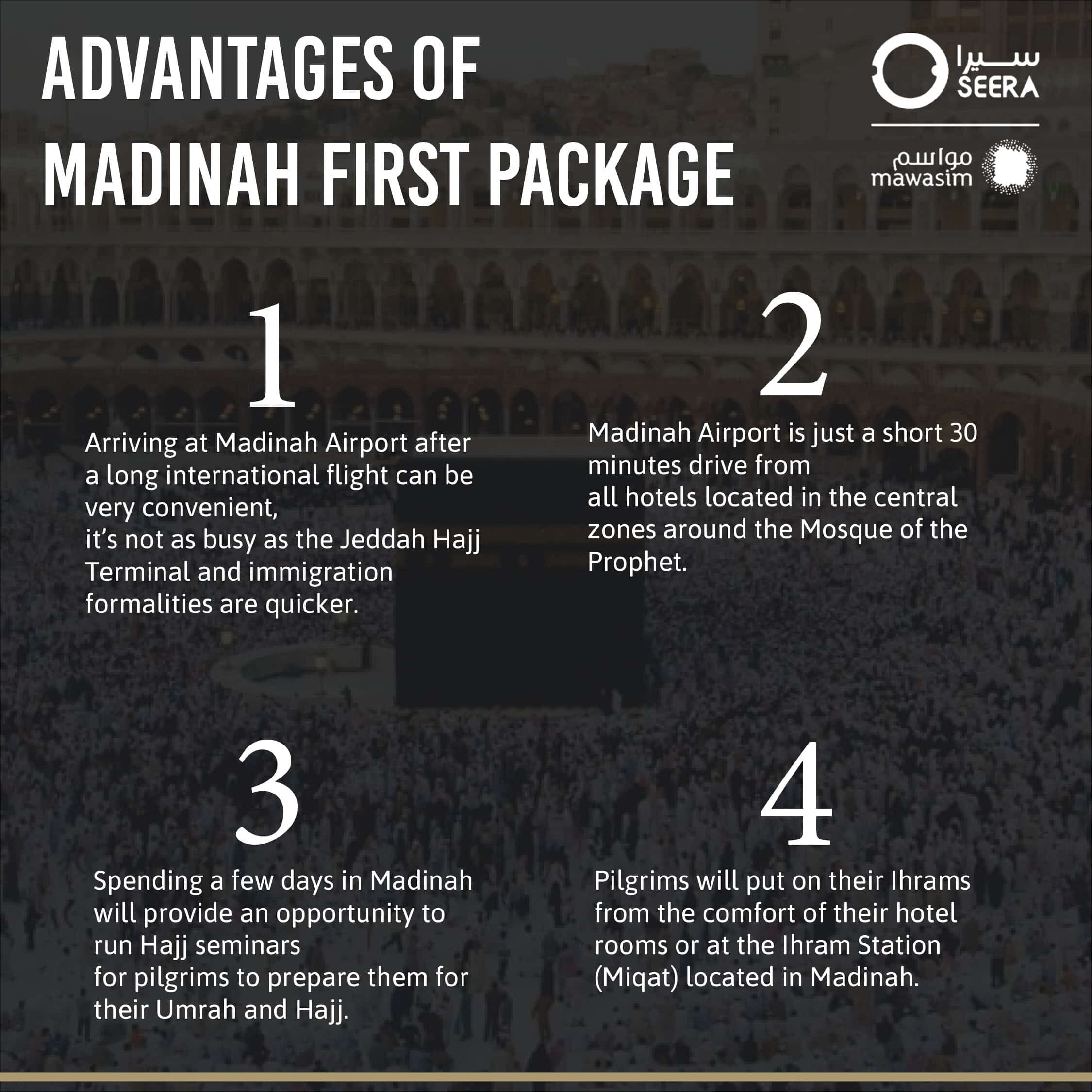2024 HAJJ REGISTRATION
PACKAGES
Embark on a meaningful spiritual journey with our standardized pilgrimage packages tailored to your preferences. Choose the best package based on services, budget, and desired service level. We provide personalized, high-quality services to ensure a memorable pilgrimage. Start planning today and make your dream pilgrimage a reality.
Hajj 2024 registrations have closed. We have started registrations for the year 2025. You can register through the form below
All Inclusive Packages
All-Inclusive packages provide all the essential services for pilgrims throughout their Hajj journey, ensuring a seamless and smooth experience. These services include visa issuance, flights, accommodation in Makkah and Madinah, catering, transportation between cities, Mashair services, and guidance.
✦ Flights ✦ Accommodations ✦ Transportation ✦Transportation ✦Visa Issuance ✦Catering ✦Tour guide
✦Validate Essential Documents
Shifting
Shifting Packages provide pilgrims with an accommodation located in close proximity to the Sacred Mashair sites during the Hajj period, ensuring both comfort in accommodation and ease of access to their belongings. Additionally, these packages offer a second accommodation in Makkah, before or after the Hajj period, typically situated near Al-Masjid Al-Haram, facilitating convenient access for prayers.
Non-Shifting
Non-Shifting packages provide pilgrims with a single accommodation throughout their stay in Makkah, both before and after performing the Hajj rituals at the Sacred Mashair sites. This adds a level of convenience to pilgrims as they are not required to relocate during their stay in Makkah.
Accommodations included in packages are selected to cater to the diverse preferences of pilgrims. The options vary between 5-Star hotels, providing the highest level of luxury and comfort, 4-Star hotels that balance luxury with practicality, and 3-Star hotels and residential buildings that offer essential services during pilgrim stay, suited for those seeking a more extended and relatively affordable experience.
Makkah Accommodation: Packages differ by offering pilgrims either a single accommodation in Makkah both before and after the Hajj period (Non-Shifting) or the flexibility to switch accommodations in Makkah (Shifting) before or after the Hajj period.
Packages and their corresponding prices are tailored based on duration, with a minimum of 6 days for Mashair packages, 10 days for Non-Shifting packages and 14 days for Shifting packages. Service providers may offer extended stays in their packages to provide pilgrims with options that cater to their preferences.
Categories Classifications
These various factors led to the introduction of 7 distinct categories for pilgrims this year, addressing their diverse needs and enhancing their overall experience.


Mina Camp
Additional Services
To enable pilgrims to compare different accommodations and consider their proximity to Al-Masjid Al-Haram and Sacred Mashair sites, Makkah has been subdivided into distinct zones, each with unique characteristics to cater to different pilgrims’ preferences.
This zone is located in very close proximity to Al-Masjid Al-Haram, usually overlooking its yards, offering pilgrims the ease of access within walking distance.
This zone encompasses the area surrounding Zone A, providing proximity to Al-Masjid Al-Haram but at a slightly greater distance compared to Zone A. While the distance to Al-Masjid Al-Haram is still walkable, certain accommodations also offer pilgrims shuttle services to Al-Masjid Al-Haram during prayer times for added convenience.
This zone encompasses the largest area of Makkah, though it is not within walking distance from Al-Masjid Al-Haram or the Sacred Mashair sites. However, it offers a variety of accommodations, some of which provide shuttle services to Al-Masjid Al-Haram during prayer times.
This zone is located in close proximity to the Sacred Mashair sites, providing pilgrims with ease of access to their accommodations during their stay in Mina.

Al-Masjid Al-Haram
Jamarat
Mina
Muzdalifah
Arafat
A Bed in a Single Room
A Bed in a Shared Double Room
A Bed in a Shared Triple Room
A Bed in a Shared Quadruple Room
The distance from Makkah to Madinah is approximately 450 km, a journey that typically takes up to 9 hours by bus, the default mode of transportation in most packages. These buses are generally equipped with modern features, prioritizing the comfort and convenience of pilgrims throughout the long trip.
Haramain High-Speed Railway
Airplane
Shuttle Bus
Private Car Services
Moreover, service providers may opt for alternative means of transportation between cities, including domestic flights or Haramain High Speed Railway. These upgraded alternatives not only ensure a comfortable journey but also adhere to a precise schedule, enhancing the overall travel experience for pilgrims moving between Makkah and Madinah.


Luxury Packages Hotels
Medinah Munavvarah:
Boasting a restaurant, Valy Hotel is situated in the centre of Al Madinah, less than 1 km from Al-Masjid an-Nabawi. This 5-star hotel offers room service and a concierge service. The property is non-smoking and is located 3.5 km from Quba Mosque.
Makkah Mukarramah:
Sheraton Makkah Hotel, a 5-star oasis in Makkah Al Mukarramah, is just 500 meters from Masjid Al-Haram. With 611 elegantly designed rooms, this family-friendly hotel offers a luxurious stay. Enjoy delicious meals at the on-site restaurant and grab a coffee at Starbucks in the lobby. Located in the city center, it's a quick 6-minute drive to Masjid Al Haram, making it an ideal choice for pilgrims and visitors.

